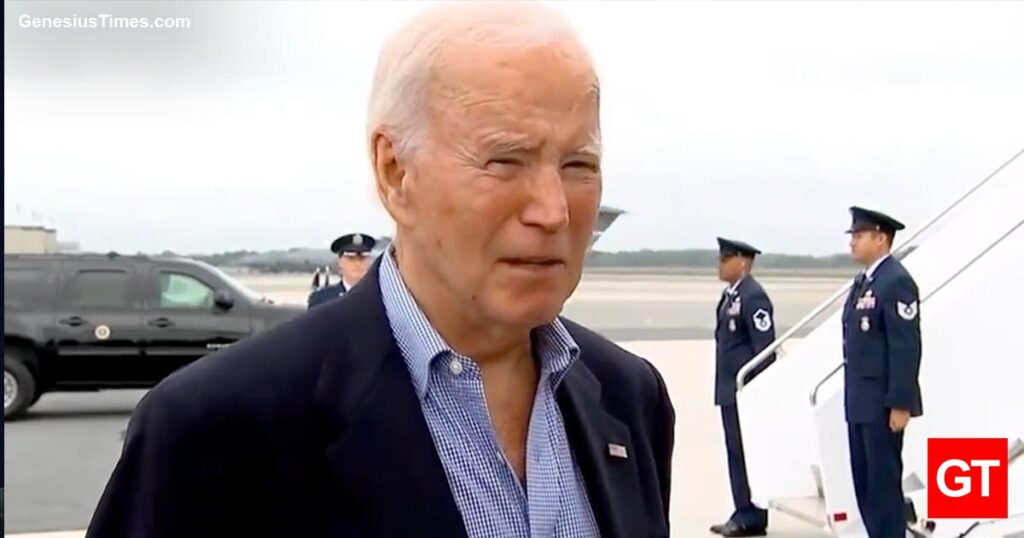BREAKING: After seeing Palisades Fire destruction in California, Biden sends another $100 billion to Ukraine

Washington, D.C. – After seeing the utter devastation caused by the Palisades Fire in California, President* Biden has agreed to send an additional $100 billion to Ukraine.
The Palisades Fire, initially a wildfire exacerbated by extreme weather conditions, led to significant destruction, including homes and infrastructure in Los Angeles County. As the fire was brought under control, the area experienced torrential rains, resulting in flash floods that have caused further chaos and devastation. With communities still grappling with the aftermath, many expected federal assistance to focus on recovery efforts in California.
However, in a move that caught both political analysts and the public off-guard, President Biden chose to prioritize international aid. “The United States remains committed to supporting Ukraine in its struggle against Russian aggression,” Biden stated during a press briefing, sidestepping questions about the domestic crisis in California. “This aid package will ensure Ukraine can continue to defend its sovereignty and rebuild.”
The announcement has led to a firestorm of reactions across social media, with hashtags like #AmericaFirst and #CaliforniaForgotten trending. Critics argue that this decision reflects a skewed priority, especially given the urgent needs in California. “We’re watching our homes drown, and our government sends billions abroad,” tweeted one frustrated resident from Pacific Palisades.
Supporters of the decision point to the geopolitical necessity of supporting Ukraine, citing that the conflict there has implications for global democracy and security. “We can’t afford to step back now,” said a political commentator on a news panel, emphasizing the strategic importance of Ukraine in the international arena.
Nevertheless, the timing and scale of the aid to Ukraine have raised eyebrows. “How can we justify $100 billion to another country when our own are literally underwater?” asked a local politician from California, echoing the sentiment of many in the state. The debate has reignited discussions on the balance between foreign aid and domestic needs, especially during natural disasters.
The Biden administration has attempted to address the backlash by stating that FEMA and other federal agencies are actively involved in relief efforts in California. “We are not neglecting our own,” said a White House spokesperson. “The aid to Ukraine does not come at the expense of our disaster response at home.”
However, the juxtaposition of these two events has not sat well with many, leading to calls for a reevaluation of federal spending priorities. As California begins the slow process of recovery, with many residents still displaced, the decision to send such a significant sum to Ukraine has left a bitter taste among those directly affected by the floods.
This move by President Biden could potentially impact his administration’s standing in states like California, where the need for immediate federal assistance is palpable. As the debate rages on, the question remains: Can the U.S. effectively support both its international commitments and its citizens in distress? Only time will tell how this decision will play out in the public and political discourse.
![]()




